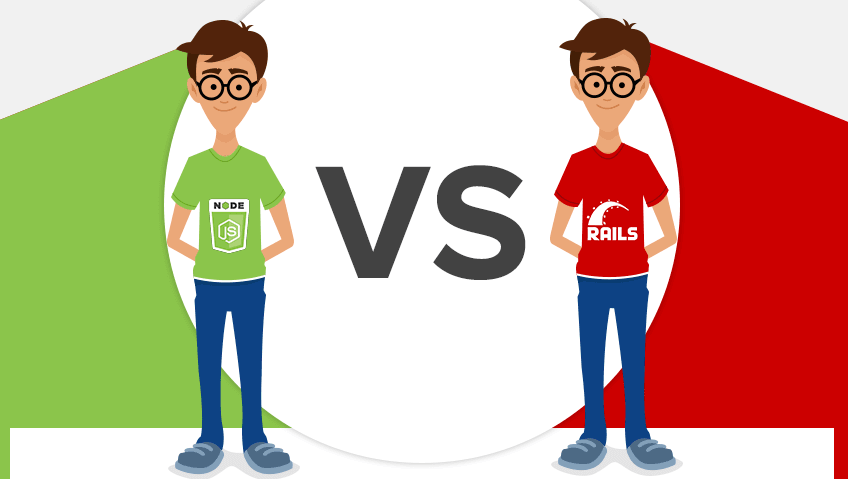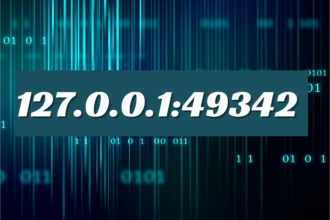Node.js Vs Ruby on Rails: Know The Differences And Make A Right Choice
We live in a world of abundance, making things complicated as businesses can have difficulty deciding which technology to pick and which to dump. As a developer, you must be familiar with Ruby on Rails and Node.js, as these two are leading development technologies.
Are they both good? Yes.
Are they both viable? Yes.
Can they be used for the same goal? No.
Node.js and Ruby on Rails have different goals, and as an end-user, you need to ensure which addresses what. In this post, we will highlight the details of Ruby on Rails vs. Node.js. So, let’s get started.
Introduction to RoR and Node.js
Node.js is an open-source server-side JavaScript framework built on Chrome’s V8 JavaScript engine. It’s preferred because of its impeccable cross-platform capacities.
Ruby on Rails (RoR) is a server-side web development framework based on Ruby that promotes using essential web standards like XML and JSON.
Ruby on Rails Vs Nodejs – The Key Differences
Framework Type
Even though they both are web application development frameworks, they are different. Node.js is a run-time framework, while Ruby on Rails is a run-time framework that includes supportive scripts.
RoR works only on the server side. However, Node.js is highly asynchronous and works best on both the client and server sides. This is possible because Node.js is based on JavaScript, a full-stack language.
Number of threads
Node.js is a single-threaded framework, while Ruby on Rails is a multi-thread framework.
Package manager
These two use different package managers. In the case of Node.js, the package manager is NPM or Node Package Manager or NPM, while Ruby Gems works in Ruby on Rails.
NPM is mainly a collection of free Node code snippets that developers can use without hesitation. Ruby Gems is not a repository. It features standard formats for program distribution.
Use cases
They both have different use cases.
For instance, Node.js is mainly preferred for server-side, API, and microservices development. Node.js can establish a link between the browser and the server, the base of server-side development.
API, mainly REST API, development is easy with Node.js as it can process requests fast and supports a full JavaScript stack. These two form the base of RESTAPIs.
Node.js is the right pick for microservices development because it features a non-blocking request-processing algorithm that enables an app to process requests faster than ever. The super-fast V8 engine of Node.js supports quick real-time data transfer.
Due to its distinct features, Ruby on Rail is preferred for a full-stack web application, CMS, and prototyping development.
RoR supports the MVC framework, which makes it perfect for full-stack development. This reduces the tediousness of the process.
If you’re willing to hire Ruby on Rail developers, consider developing a CMS or Content Management System. With RoR, it’s easy to write super-rich capabilities. As it features a high abstraction level, it’s possible to map the complete databases and tables.
With RoR, creating prototypes is easy, enabling developers to write codes fast with the least possible errors. The various command-line code builders’ capabilities would allow developers to write code from scratch.
It also easily gets coupled with open-source libraries, making developing ready-to-use codes possible.
Speed
Node.js is a faster option. The page load speed is more rapid than Ruby on Rails.
Server creation abilities
Node.js, being a full-stack framework, enables developers to design servers. Developers can develop web servers according to the ability to handle HTTP requests. This will not happen with RoR, as it depends on WEBrick, Apache, NGINX, and Cherokee.
Learning Curve
Thankfully, they both are easy-to-handle frameworks. But when closely compared, Node.js is easier than RoR. Even a rookie developer can create wonders with Node.js. In the case of RoR, it’s better to have a basic understanding of Ruby-level methods, classes, and objects to get started.
All About Making A Right Choice
Both Ruby on Rails and Node.js are great resources for application development. They are both easy to use and provide ample facilities but have significant differences and objectives.
Before hiring a Ruby on Rails developer or outsourcing them, have your hands on the critical differences between these shares and your development objects. Choose the one that fits the best.
Does it seem like too much work? It’s better to hire a professional development consultant and have clarity. If you have selected your framework, hire development experts. Bacancy technology can help you with the next step in both cases.

















